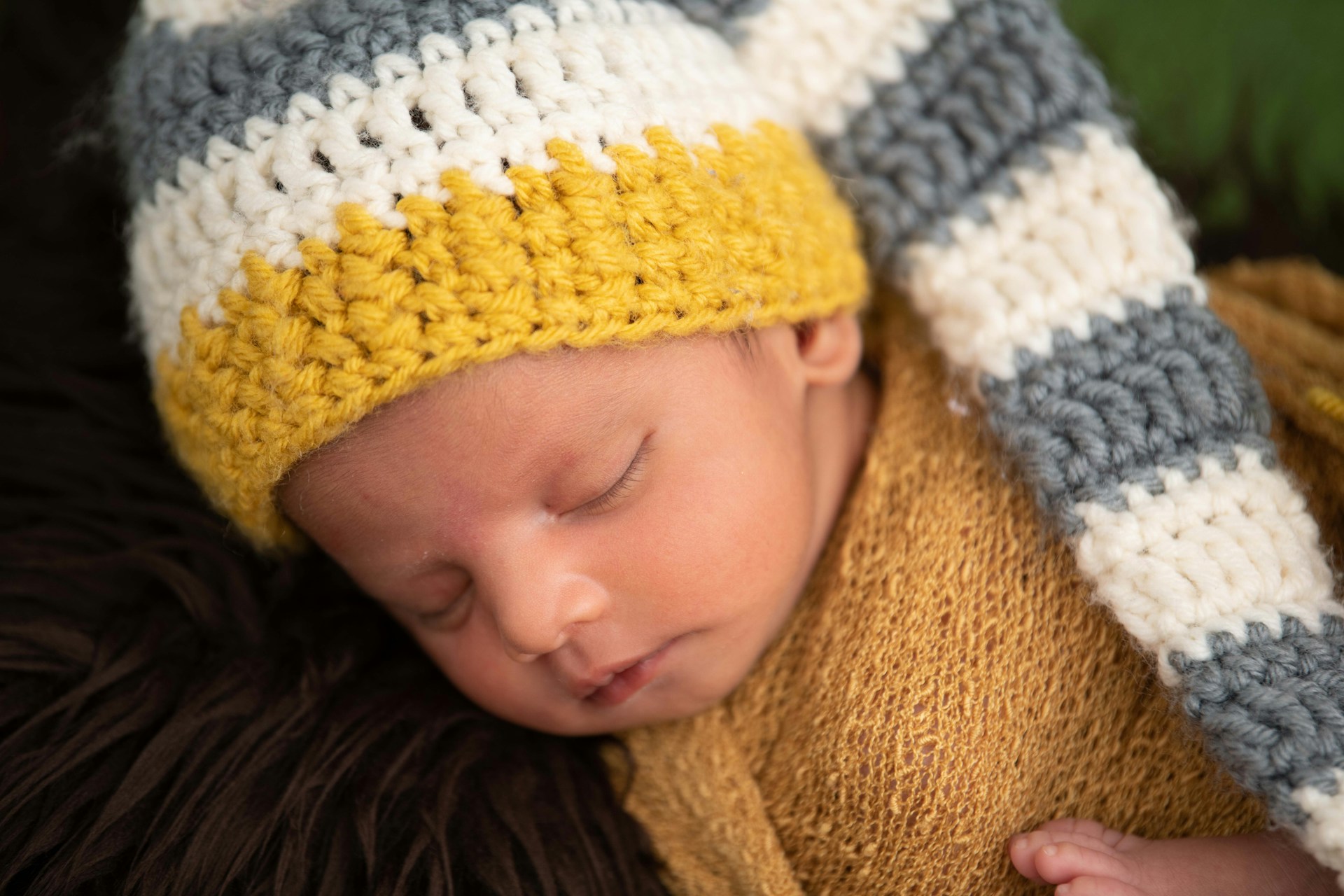Your baby is now two months old, and you may have noticed some exciting changes as they continue to grow and develop. At this stage, babies are becoming more aware of their surroundings and are starting to show their personalities. Understanding what to expect during this time can help you support your baby’s development and enjoy the special moments that come with these early stages.
Physical Development: Growing Stronger Every Day
1. Increased Head Control
At two months, your baby’s neck muscles are getting stronger, and they may start to hold their head up for short periods when lying on their tummy or when held upright. This newfound strength is an important milestone that prepares them for future skills like rolling over and sitting up.
Tip: Continue tummy time daily to help your baby build muscle strength in their neck, shoulders, and upper body. Start with a few minutes at a time and gradually increase the duration as they get more comfortable.
2. More Active Movements
You may notice your baby becoming more active, with more controlled arm and leg movements. While they may still seem jerky at times, these movements are a sign of developing motor skills.
Tip: Encourage movement by placing toys or objects within your baby’s reach. This can help them practice reaching and grasping, further enhancing their motor skills.
Cognitive Development: Curiosity and Awareness
1. Improved Focus and Tracking
At this age, your baby’s vision is improving, allowing them to focus on objects and track moving things with their eyes. They may start to follow your face or a favorite toy as it moves from side to side.
Tip: Hold brightly colored toys or objects in front of your baby and move them slowly to encourage visual tracking. You can also play games like peekaboo to engage their attention.
2. Recognizing Familiar Faces and Voices
Your baby is becoming more familiar with the people and voices around them. They may smile or show excitement when they see your face or hear your voice, which is a delightful sign of social and emotional development.
Tip: Spend time talking, singing, and making eye contact with your baby. This interaction not only strengthens your bond but also helps them learn to recognize and respond to social cues.
Emotional and Social Development: Building Connections
1. The First Social Smile
One of the most heartwarming milestones at two months is your baby’s first social smile. While they may have smiled reflexively before, they are now starting to smile in response to your voice, touch, or facial expressions. This is an early sign of their growing social awareness.
Tip: Encourage smiling by smiling back, talking gently, and making silly faces. Your baby’s smile is a way of communicating and connecting with you, so enjoy these moments of joy.
2. Starting to Coos and Gurgles
Around this time, you might hear your baby making cooing and gurgling sounds. These early vocalizations are their way of experimenting with sounds and starting to develop language skills.
Tip: Engage in “conversations” with your baby by responding to their coos and gurgles. This back-and-forth interaction helps them learn about communication and encourages further vocal development.
Sleep Patterns: Adjusting to a Routine
1. Longer Sleep Stretches at Night
By two months, some babies start to sleep for longer stretches at night, though they will still wake up for feedings. Establishing a consistent bedtime routine can help signal to your baby that it’s time to sleep.
Tip: Create a calming bedtime routine that includes activities like a warm bath, gentle rocking, or soft lullabies. This routine can help your baby wind down and prepare for sleep.
2. Daytime Naps
Your baby will still need plenty of daytime naps, but their sleep patterns might start to become more predictable. Watch for signs of tiredness, such as rubbing their eyes or becoming fussy, and help them settle down for a nap.
Tip: Try to put your baby down for naps at the same times each day to create a consistent schedule. This can help them feel more secure and rested.
How to Support Your Baby’s Development
Supporting your baby’s development at two months is all about providing a nurturing and stimulating environment. Here are some ways you can help:
- Interactive Play: Spend time engaging with your baby through play. Simple activities like talking, singing, and showing them toys can greatly stimulate their senses and development.
- Comfort and Cuddles: Your baby still needs plenty of love and reassurance. Hold them close, cuddle, and respond to their needs to help them feel safe and secure.
- Exposure to Different Environments: Take your baby for walks or introduce them to new surroundings within your home. This can help them become more aware of the world around them and stimulate their curiosity.
When to Seek Guidance
While every baby develops at their own pace, it’s important to know when to seek guidance. If you notice that your baby isn’t showing interest in people or objects, isn’t smiling or making sounds, or seems to have difficulty holding up their head, it may be worth discussing with your pediatrician. Early intervention can be helpful if there are any concerns about your baby’s development.
Enjoying the Journey
The second month is a time of exciting growth and change for your baby. From their first social smiles to the development of their motor skills, these milestones are precious moments that mark the beginning of their journey through life. Remember to cherish these early days, celebrate your baby’s progress, and continue to provide the love and support they need to thrive. Every baby is unique, and as you guide them through these early stages, you’re helping them build a strong foundation for the future.

